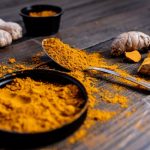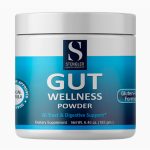Turmeric, a vibrant yellow spice commonly found in South Asian cuisine, has long been hailed for potential health benefits. Derived from the root of the Curcuma longa plant, turmeric has a rich history spanning over 4,000 years, with its use deeply ingrained in traditional Ayurvedic and Chinese medicine. The active compound in turmeric, curcumin, is credited with many of its purported health effects. This article delves into the benefits and risks of turmeric, providing a comprehensive overview of this remarkable spice.
A History of Healing: Turmeric's Traditional Uses
Turmeric has been a cornerstone of traditional medicine for centuries, used to treat a variety of ailments. In Ayurvedic medicine, it’s been employed to address digestive issues, liver problems, skin diseases, and wounds. Chinese medicine practitioners have used turmeric to treat inflammatory conditions and as a general tonic to promote health and vitality.
Curcumin, the primary active ingredient in turmeric, is a powerful antioxidant. Antioxidants combat free radicals in the body, molecules that can damage cell membranes, tamper with DNA, and even cause cell death. The antioxidant properties of curcumin enable it to neutralize free radicals and might reduce or prevent some of the damage they cause.
Turmeric in Modern Medicine: Scientific Evidence
Western medicine has begun to investigate turmeric’s potential health benefits more rigorously. While many studies have been conducted in test tubes and animals, some human studies have shown promising results. For instance, curcumin has demonstrated anti-inflammatory, anti-cancer, and antioxidant properties in various studies.
Anti-Inflammatory Properties
One of turmeric's most acclaimed benefits is its ability to reduce inflammation. Chronic inflammation is a root cause of many diseases, including heart disease, cancer, metabolic syndrome, Alzheimer's, and various degenerative conditions. Several studies cited by the Arthritis Foundation suggest that curcumin can reduce inflammation in individuals with arthritis. The foundation recommends taking capsules of 400 to 600 milligrams of turmeric up to three times per day for inflammation relief.
Pain Relief
Turmeric is reputed for its pain-relieving properties. Anecdotal evidence and some scientific studies suggest that it can help alleviate pain associated with arthritis. One study indicated that curcumin was as effective as ibuprofen in reducing pain in patients with knee osteoarthritis. Participants in the study consumed 800 mg of turmeric in capsule form each day, experiencing significant pain relief.
Digestive Health
Turmeric has been traditionally used to treat digestive problems, a practice supported by modern science. Curcumin stimulates the gallbladder to produce bile, which helps in digesting food. This can be particularly beneficial for people with indigestion or dyspepsia. However, it's important to note that turmeric can also increase stomach acid production, which might exacerbate conditions like acid reflux in some individuals.
Antioxidant Capabilities
Curcumin's antioxidant properties are another significant benefit. By neutralizing free radicals, antioxidants can reduce oxidative stress linked to several chronic diseases. Curcumin’s role as a powerful antioxidant means it can help protect the body from damage by scavenging these harmful molecules.
Studies have shown that curcumin can increase the activity of the body’s antioxidant enzymes. This dual action of directly neutralizing free radicals and stimulating the body’s defenses makes curcumin a potent antioxidant.
Supporting Liver Function
Turmeric’s antioxidant properties also extend to supporting liver health. The liver plays a crucial role in detoxifying the body, and antioxidants can help mitigate the damage caused by toxins. This makes turmeric a valuable ally in maintaining liver health.
Recent studies have suggested that turmeric may enhance liver function by increasing the production of vital enzymes detoxifying the blood. This can be particularly beneficial for individuals exposed to environmental toxins or those with liver conditions.
Cognitive Health and Neuroprotective Effects
Curcumin’s ability to cross the blood-brain barrier has sparked interest in its potential neuroprotective effects. Chronic inflammation and oxidative stress are significant contributors to neurodegenerative diseases like Alzheimer’s disease. Due to its anti-inflammatory and antioxidant properties, curcumin might help reduce the risk or delay the onset of these conditions.
Some studies have shown that curcumin can increase levels of brain-derived neurotrophic factor (BDNF). This protein promotes the survival of neurons and plays a critical role in learning and memory. Low levels of BDNF are linked to depression and Alzheimer’s disease, suggesting that curcumin could potentially improve cognitive function and lower the risk of brain diseases.
Potential Risks and Side Effects
Despite its many potential benefits, turmeric has drawbacks. It’s important to know the possible side effects and interactions, especially for those considering turmeric supplements.
Blood Thinning
Turmeric’s purifying properties can thin the blood, which may increase the risk of bleeding. This is particularly concerning for individuals taking blood-thinning medications like warfarin (Coumadin). The Arthritis Foundation advises caution for those on such medications, as turmeric can enhance their effects and potentiate bleeding risk.
Digestive Issues
While turmeric can aid digestion for some, it can cause stomach upset for others. Increased gastric acid production might lead to digestive distress, including bloating, acid reflux, and stomach cramps. Those with pre-existing gastrointestinal conditions should consult a healthcare provider before adding significant amounts of turmeric to their diet.
Interactions with Medications
Turmeric can interact with a variety of medications and supplements. Care should be taken, especially for individuals on blood-thinning, antidiabetic, and chemotherapy medications. It’s crucial to consult a healthcare provider before starting turmeric supplements, particularly if you’re on any medication that could interact with it. The Medical News Today article outlines several medicines that could interact with turmeric, including anticoagulants, antidiabetics, and certain chemotherapy drugs.
Pregnancy and Breastfeeding
Pregnant and breastfeeding women should avoid turmeric supplements. While using turmeric as a spice is generally considered safe, the higher concentrations found in supplements may pose risks. Turmeric’s blood-thinning properties could stimulate uterine contractions, leading to preterm labor. Therefore, it's advisable to consult a healthcare provider before consuming turmeric in supplement form during pregnancy or while breastfeeding.
Practical Applications and Consumption
Turmeric is available in various forms, from fresh roots and ground powder to capsules and extracts. It’s a staple ingredient in curry powder and is used to color and flavor a wide range of dishes, from mustards to cheeses. The versatility of turmeric in the kitchen makes it an easy addition to the diet.
Culinary Uses
Incorporating turmeric into your daily meals can be an enjoyable way to reap its benefits. It can be added to soups, stews, rice dishes, and smoothies. The bright yellow color and unique flavor profile make it a versatile spice in many cuisines. Pairing turmeric with black pepper enhances the absorption of curcumin in the body, thanks to piperine, a compound in black pepper.
Supplements and Dosages
Turmeric supplements are an option for those looking to achieve higher doses of curcumin than what is typically available through culinary use. However, it’s essential to choose supplements from reputable manufacturers to avoid issues with contamination and ensure adequate absorption. The Medical News Today article recommends taking turmeric in capsule form, with dosages varying based on the condition being treated. It’s generally suggested to start with a lower dose and increase gradually under the guidance of a healthcare provider.
Potential for Overuse
While turmeric is generally safe when consumed in moderate amounts, excessive intake can lead to adverse effects. High doses of turmeric supplements are associated with gastrointestinal issues, such as nausea and diarrhea. It’s crucial to adhere to recommended dosages and consult a healthcare provider if you experience any adverse effects.
Conclusion: A Balanced Approach to Turmeric
The potential health benefits of turmeric are impressive, from reducing inflammation and relieving pain to supporting liver and cognitive health. However, it’s essential to approach turmeric use cautiously, particularly when considering supplements. The risks associated with its blood-thinning properties and interactions with medications cannot be overlooked.
For most people, incorporating moderate amounts of turmeric into their diet is a safe and effective way to enjoy its benefits. Using turmeric as a spice in cooking allows for a flavorful and healthful addition to meals without the risks associated with high-dose supplements.
In summary, turmeric is a valuable spice with a rich history and promising health benefits. By understanding its potential uses and risks, you can make informed decisions about incorporating it into your health regimen. As always, consulting with a healthcare provider before starting any new supplement is advisable to ensure it’s appropriate for your health needs. For more information on the benefits and risks of turmeric, you can visit Mount Sinai and Versus Arthritis.









